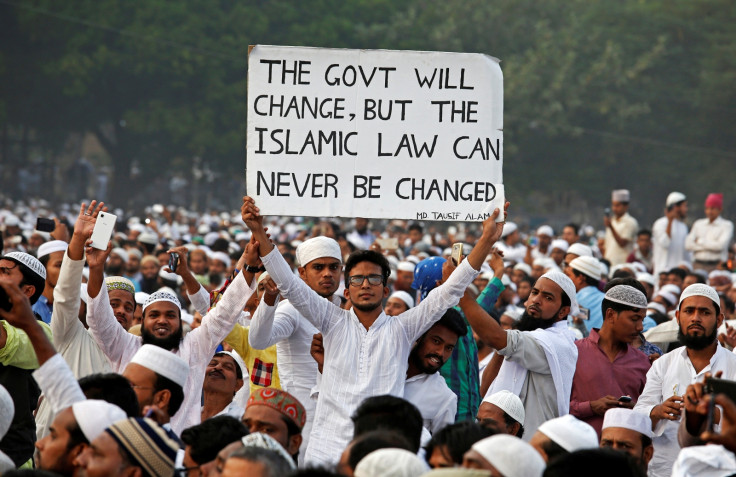Triple Talaq: India's highest court outlaws Islamic instant divorce practice
India's Supreme Court said the religious practice 'violates constitutional morality' and clamped a blanket ban.

In a major ruling, India's highest court has ruled against the controversial practice of "triple talaq", the instant divorce method through which many Muslim men separate their wives in the country. The verdict was pronounced by a five-member judge panel that had judges belonging to different religious faiths.
The issue of triple talaq – in which a Muslim husband utters the word talaq three times to divorce his wife or wives – has been at the centre of a political and religious controversy for several years in India. Muslims enjoy a separate special status in India, a secular state, when it comes to matters like marriage, property inheritance and family laws.
On Tuesday, 22 August, the Supreme Court ruled that the practice of triple talaq would no longer be acceptable and asked the government to amend the legislation to outlaw the custom. While three members of the panel were in favour of prohibiting the practice, two other judges, including the country's chief justice, were against a blanket ban. But, the majority was counted as the final outcome.
The judges wrote that triple talaq "is not integral to religious practice and violates constitutional morality" in their verdict setting aside the practice, which is said to be about 1,400 years old. More than 20 Muslim-majority nations, many of them theocracies, have already banned the practice including India's neighbours Pakistan and Bangladesh.
The verdict has been welcomed overwhelmingly by all sections of society except some hardline Islamic bodies, which had lobbied against the interference of the judiciary and the executive in the Muslim personal law.
"I welcome and support the judgment. It is a historic day for Muslim women. In the Muslim community, the condition of women needs to be understood. This judgment needs to be accepted and the law must be made as soon as possible," said Shayara Bano, one of the main petitioners in the case.
Responding to the landmark ruling, Asmita Basu, Programmes Director at Amnesty International India, said: "We welcome the Supreme Court judgment. Triple talaq is a discriminatory practice that violates women's right to equality, and has devastated the lives of many Muslim women. The Supreme Court's bar on this regressive practice is a step forward for women's rights in India. We urge the government to repeal all religious family laws that violate women's right to equality, without exception."
The matter over triple talaq gathered momentum in recent months after several cases involving Muslim men divorcing their wives through WhatsApp, Facebook and Skype began to surface. Many rounds of arguments from both sides ended in May 2017.
Of the 1.25 billion strong Indian population, a vast majority are Hindus and about 180 million are thought to be Muslims, making up roughly 15% of the population.
© Copyright IBTimes 2025. All rights reserved.






















